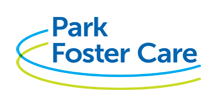Independent fostering agencies (IFAs) have played a key role in helping local authorities meet the increased demand for foster care placements since the death of Baby Peter. In addition to supplying more foster carers, they
Independent fostering agencies (IFAs) have played a key role in helping local authorities meet the increased demand for foster care placements since the death of Baby Peter. In addition to supplying more foster carers, they have provided placements for young people with additional needs whom local authorities find more difficult to place.
One challenge IFAs have had to overcome is the provision of training for their foster carers to support them to meet the needs of looked-after children. One IFA which has met this challenge is Park Foster Care. This Cheshire-based agency designed its own parenting programme for their foster carers, Park’s Parenting Approach (PPA).
PPA is delivered in nine two-hour sessions. It is influenced by the Incredible Years and Fostering Changes programmes, as well as attachment and social learning theory. It is designed to support foster carers to meet the specific needs of looked-after children. It aims to support carers to manage challenging behaviour by helping them to develop positive relationships with their foster children.
Like many bespoke social care training programmes, there is limited evidence of the effectiveness of the PPA. However, Philippa Davies, a graduate of the MSc Mental Health Social Work with Children & Adults programme at the Institute of Psychiatry, King’s College London, has evaluated its impact on carer confidence, perceived child behaviour and perceived carer benefit. The findings of her study have just been published in the British Association of Social Work journal Practice: Social Work in Action.
She conducted a pre-post evaluation of 55 foster carers undertaking the nine week course. Her evaluation included carers’ ratings of their foster child’s most challenging problems; parenting style; carer efficacy; and a survey of carer satisfaction with training.
She found a mean decrease in foster carers’ ratings of their foster children’s problem behaviours over the nine week period. This represented either an improvement in the behaviour of the children or foster carers’ ability to manage it. Although she found no change in the parenting style of the foster carers, she did find an increase in participants’ confidence in looking after their children. Carers also expressed a high level of satisfaction with the programme.
This modest single-group pilot study found significant changes over the duration of the training programme. No data is available on long term outcomes and no comparison group was used, which makes it difficult to know if the changes were sustained after the end of the programme or would have occurred anyway without the training. However, it does suggest that providing training within an independent fostering agency can produce statistically significant benefits for foster carers and their children.
The full paper is available by clicking this link for a limited period of time. If this does not work, please do not hesitate to contact me for a PDF version of the paper.
